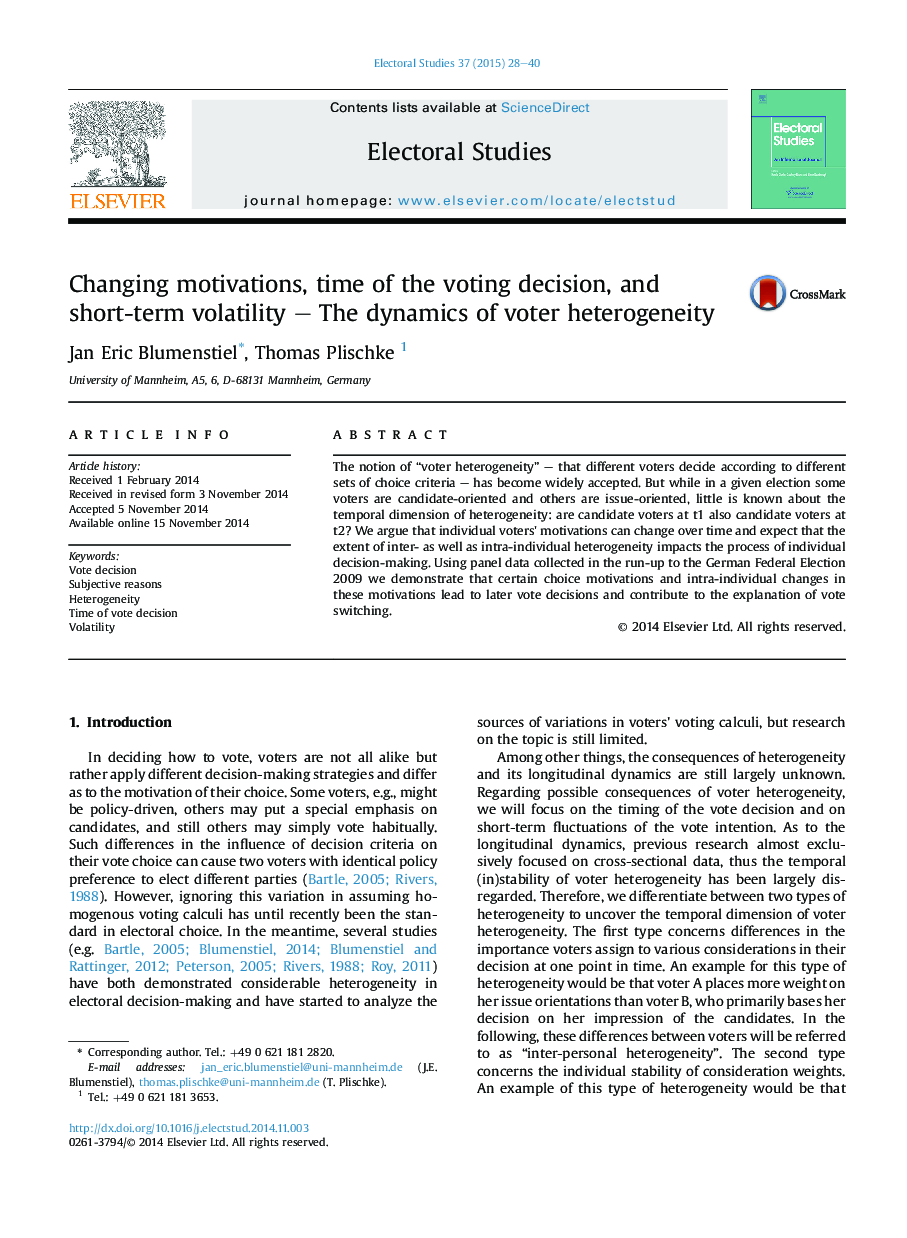| Article ID | Journal | Published Year | Pages | File Type |
|---|---|---|---|---|
| 1051815 | Electoral Studies | 2015 | 13 Pages |
•Voters differ in their decision rules and change their choice motivations over time.•We argue that self-reports reveal most important reasons for voting decisions.•Changes in choice motivations over time predict the time of the voting decision.•Changes in motivations are responsible for short-term volatility in vote intentions.
The notion of “voter heterogeneity” – that different voters decide according to different sets of choice criteria – has become widely accepted. But while in a given election some voters are candidate-oriented and others are issue-oriented, little is known about the temporal dimension of heterogeneity: are candidate voters at t1 also candidate voters at t2? We argue that individual voters' motivations can change over time and expect that the extent of inter- as well as intra-individual heterogeneity impacts the process of individual decision-making. Using panel data collected in the run-up to the German Federal Election 2009 we demonstrate that certain choice motivations and intra-individual changes in these motivations lead to later vote decisions and contribute to the explanation of vote switching.
